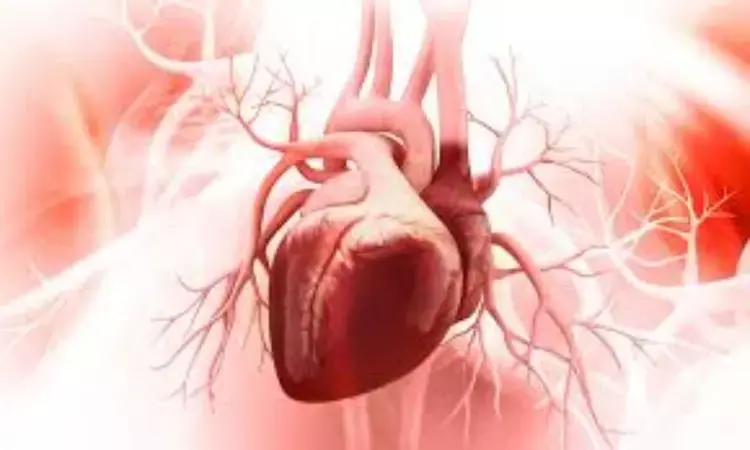- Home
- Medical news & Guidelines
- Anesthesiology
- Cardiology and CTVS
- Critical Care
- Dentistry
- Dermatology
- Diabetes and Endocrinology
- ENT
- Gastroenterology
- Medicine
- Nephrology
- Neurology
- Obstretics-Gynaecology
- Oncology
- Ophthalmology
- Orthopaedics
- Pediatrics-Neonatology
- Psychiatry
- Pulmonology
- Radiology
- Surgery
- Urology
- Laboratory Medicine
- Diet
- Nursing
- Paramedical
- Physiotherapy
- Health news
- Fact Check
- Bone Health Fact Check
- Brain Health Fact Check
- Cancer Related Fact Check
- Child Care Fact Check
- Dental and oral health fact check
- Diabetes and metabolic health fact check
- Diet and Nutrition Fact Check
- Eye and ENT Care Fact Check
- Fitness fact check
- Gut health fact check
- Heart health fact check
- Kidney health fact check
- Medical education fact check
- Men's health fact check
- Respiratory fact check
- Skin and hair care fact check
- Vaccine and Immunization fact check
- Women's health fact check
- AYUSH
- State News
- Andaman and Nicobar Islands
- Andhra Pradesh
- Arunachal Pradesh
- Assam
- Bihar
- Chandigarh
- Chattisgarh
- Dadra and Nagar Haveli
- Daman and Diu
- Delhi
- Goa
- Gujarat
- Haryana
- Himachal Pradesh
- Jammu & Kashmir
- Jharkhand
- Karnataka
- Kerala
- Ladakh
- Lakshadweep
- Madhya Pradesh
- Maharashtra
- Manipur
- Meghalaya
- Mizoram
- Nagaland
- Odisha
- Puducherry
- Punjab
- Rajasthan
- Sikkim
- Tamil Nadu
- Telangana
- Tripura
- Uttar Pradesh
- Uttrakhand
- West Bengal
- Medical Education
- Industry
Ketone Ester Treatment Improves Heart Function in Type 2 Diabetes and HFpEF, New Study Finds

Denmark: A recent randomized crossover trial has revealed promising results for a two-week oral ketone ester (KE) treatment in patients with Type 2 diabetes mellitus (T2DM) and heart failure with preserved ejection fraction (HFpEF). The study, aimed at exploring novel therapeutic options for these challenging conditions, demonstrated significant improvements in cardiac function and symptoms.
"Positive data from oral ketone ester treatment trials support the use of modulating circulating ketone levels in patients with type 2 diabetes and HFpEF," the researchers wrote in Circulation.
Heart failure with preserved ejection fraction significantly contributes to morbidity and mortality in patients with type 2 diabetes. While acute rises in the ketone body 3-hydroxybutyrate have shown beneficial hemodynamic effects in patients without T2DM who have chronic heart failure with reduced ejection fraction, the impact of extended oral ketone ester treatment on cardiovascular health in individuals with T2DM and HFpEF is still not well understood.
To fill this knowledge gap, Nigopan Gopalasingam, Department of Cardiology, Aarhus University Hospital, Denmark, and colleagues conducted a 6-week randomized, double-blind crossover study comprising 24 patients with T2DM and HFpEF.
All participants received a two-week course of KE treatment (25 g of D-ß-hydroxybutyrate-(R)-1,3-butanediol taken four times daily) along with an isocaloric and isovolumic placebo, with a two-week washout period in between. At the end of each treatment phase, patients underwent right heart catheterization, echocardiography, and blood sampling at trough levels of the intervention. Following this, during a 4-hour resting period after a single dose, a second dose was administered, and an exercise test was conducted. The study's primary endpoint was cardiac output measured during the 4-hour rest period.
The researchers reported the following findings:
- During the 4-hour resting period, circulating 3-hydroxybutyrate levels were 10-fold higher after KE treatment (1010±56 µmol/L) compared with placebo (91±55 µmol/L).
- Compared with placebo, KE treatment increased cardiac output by 0.2 L/min during the 4 hours and decreased pulmonary capillary wedge pressure at rest by 1 mm Hg and at peak exercise by 5 mm Hg.
- KE treatment decreased the pressure-flow relationship (∆ pulmonary capillary wedge pressure/∆ cardiac output) significantly during exercise and increased stroke volume by 10 mL at peak exercise.
- KE right-shifted the left ventricular end-diastolic pressure-volume relationship, suggestive of reduced left ventricular stiffness and improved compliance.
- Favorable hemodynamic responses of KE treatment were also observed in patients treated with sodium-glucose transporter-2 inhibitors and glucagon-like peptide-1 analogs.
The study showed that a two-week oral ketone ester (KE) treatment resulted in increased cardiac output and reductions in cardiac filling pressures and ventricular stiffness in patients with T2DM and HFpEF. During peak exercise, KE treatment significantly lowered pulmonary capillary wedge pressure and enhanced the pressure-flow relationship.
"These findings suggest that modulating circulating ketone levels could offer a promising new treatment approach for individuals with T2DM and HFpEF," the researchers concluded.
Reference:
https://doi.org/10.1161/CIRCULATIONAHA.124.069732
Dr Kamal Kant Kohli-MBBS, DTCD- a chest specialist with more than 30 years of practice and a flair for writing clinical articles, Dr Kamal Kant Kohli joined Medical Dialogues as a Chief Editor of Medical News. Besides writing articles, as an editor, he proofreads and verifies all the medical content published on Medical Dialogues including those coming from journals, studies,medical conferences,guidelines etc. Email: drkohli@medicaldialogues.in. Contact no. 011-43720751


